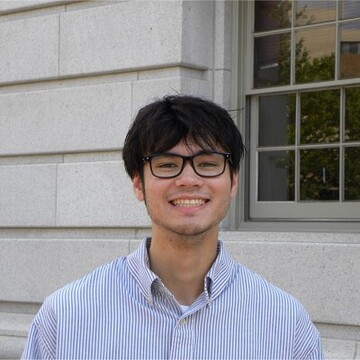It was 1 p.m. the day after Christmas and I had just woken up on the pull-out couch in my parent’s basement. Feeling like a hybrid of human and slug, I did what any self-respecting 21-year-old would do: I spent the next hour scrolling YikYak, which is basically just anonymous Twitter for University of Wisconsin students.
One post caught my attention. It read: “My skin and hair when I’m at my parent’s house: clean, pristine, gorgeous, hydrated, thriving. My mental and physical health when I’m at my parent’s house: DEMONS ARE INSIDE ME.”
Though funny, I think this post illuminates a real problem students face during breaks. College students lead highly rigid and structured lives. We skip breakfast, walk to class, go to club or work in the afternoon, go out on the weekends and every few weeks gear up for a cycle of exams. You’d be hard-pressed to find a UW student who isn’t proof of this formula.
So what happens when this routine is utterly obliterated aside from the skipping breakfast part? How do we spend our mornings if not in class? Our afternoons and nights if not at work or with friends? The all too familiar answer is in the sunken body imprints of our childhood beds exploring the random crevices of Instagram Reels, TikTok and even YikYak.
Winter break’s appeal is in the name — we need time away from the stress that comes with college life. But, students should be aware of simply moving from one extreme to the other, from high activity to no activity. Even on our rest days we should get up and move around.
A 2021 study from the American Psychological Association posed an interesting question. Americans are obsessed with time. We’re often upset about not having enough time for hobbies, friends or sleep — so much so that we practice effortful time management. We meal prep or eat out to avoid cooking and study early in the week so we can have fun on weekends. But, “would actually having more time make people better off?”
The answer, researchers found, was a resounding no. Discretionary time was positively linked with subjective well-being up to a point — about 5 hours. Beyond that, well-being began to decline to levels similar to those who reported only a measly thirty minutes of discretionary time a day.
Unsurprisingly, this effect was dependent on how participants decided to spend their time. Those who were social and productive in their free time saw no drop off in well-being.
But what is really going on here? We undeniably enjoy nonproductive and solo activities. Spending the day watching your favorite shows and gorging on snacks is sometimes preferred to a day of applying to internships or being social, which can be exhausting. Why does a surplus of these activities worsen our well-being?
The answer lies in our identity as college students, what we consider to be important and socially desirable. Think of a friend you admire — the one who takes the hardest classes, has a prestigious internship and job but still manages to have fun at the end of the week. This person is impressive because they excel in a culture of busyness.
Self-imposed busyness has become a heavily romanticized status symbol in American life. Busy people are competent, ambitious and in-demand both on the job market and relationally. And on college campuses where competition and status are everything, staying booked is the ultimate distinction.
This culture isn’t necessarily a bad thing. The drive to stay busy is responsible for many of our greatest accomplishments and the formation of our strongest friendships. But we shouldn’t let it undermine our well deserved winter break — we shouldn’t feel guilty for not staying constantly busy.
So, how can we strike a balance — limiting excessive leisure while still enjoying our breaks without the constant pressure to stay busy? What I’ve found helpful is to take a more dialectic and balanced approach to change. Dialectical thinking, more than analytical thinking, acknowledges that change is natural and improvement isn’t constant.
Whereas an analytical person might say “I’ve been doing really well on my exams, i’m going to keep doing well,” a dialectical person might say, “I’ve been doing really well on my exams, I’m probably going to bomb one soon.”
From this perspective, a period of mundanity like winter break naturally follows a period of intensity like a college semester and vice versa. Our understanding of productivity can be viewed fluidly in the same way.
A productive day during the semester might look like hardcore work from sunrise to sunset, whereas a productive day during break might look like four or five hours of reading or exercising. Regardless, both days are productive and engaging in the latter doesn’t mean you are lazy or unvaluable.
For all the things we might resent about our lives on campus — the 8 a.m. lectures, unamiable professors or classmates and exams — they are also lifegiving. Quite literally reasons to get out of bed in the morning, which during the cold weeks of December and January can become swiftly rare.
But we shouldn’t rely solely on these structures to give us purpose. By appreciating that rest is the essential counterpart of productivity, winter break becomes just as if not more fulfilling than our time spent in class.




